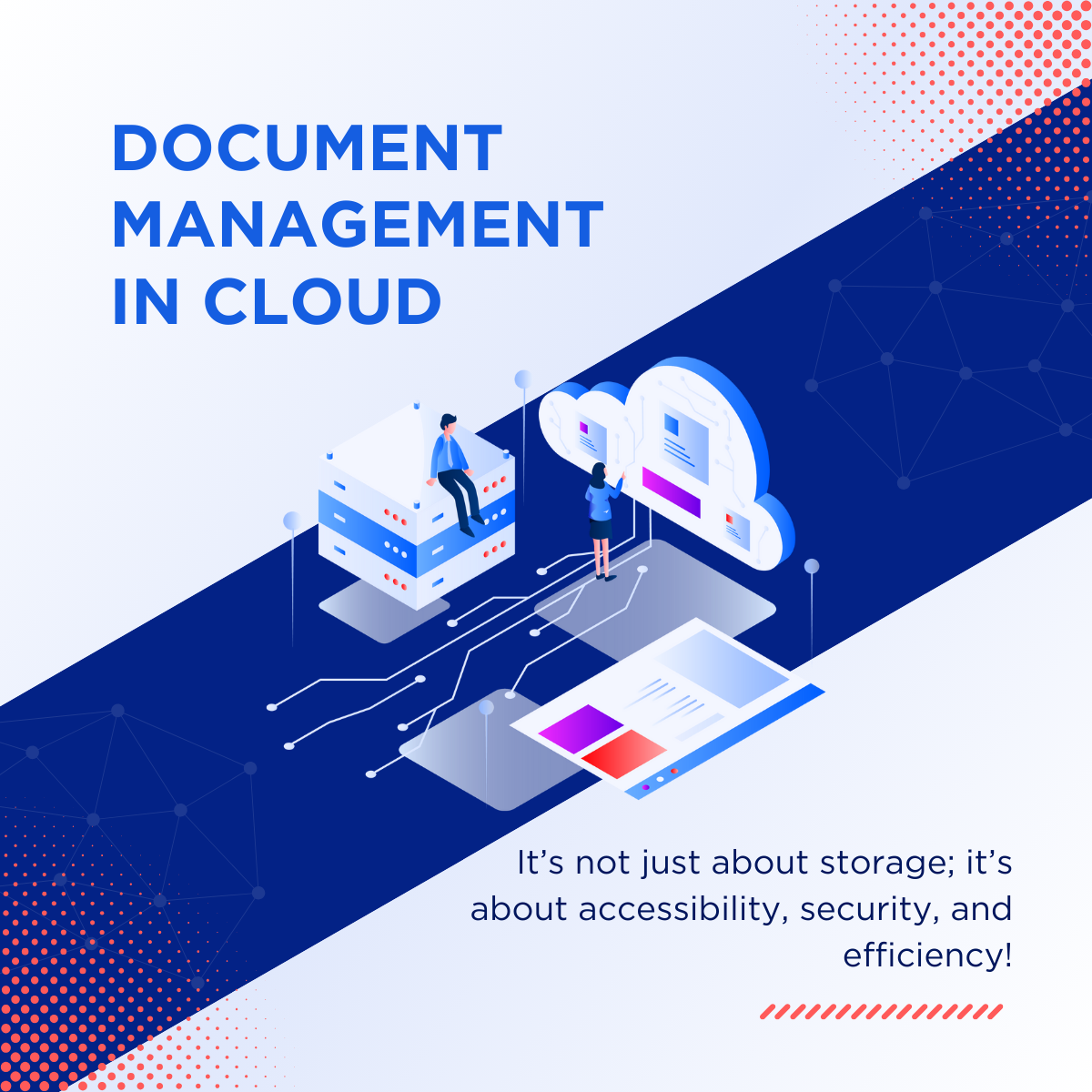Think about how businesses used to handle documents—filing cabinets, paper trails, and endless storage rooms. Fast forward to today, and we have cloud-based document management systems that are revolutionizing how businesses store, access, and secure their data.
The shift to cloud-based solutions isn’t just a trend—it’s a necessity for companies looking to improve efficiency, enhance security, and streamline operations. But how exactly does cloud-based document management impact business efficiency? Let’s explore.
1. Anytime, Anywhere Access
One of the biggest advantages of cloud-based document management is accessibility. Employees can access documents from anywhere with an internet connection. Whether working remotely, collaborating across different locations, or on a business trip, cloud solutions eliminate the need for physical files or office-bound servers.
How does this improve efficiency?
- Eliminates downtime caused by missing files or in-office-only access.
- Speeds up decision-making with real-time collaboration.
- Enhances productivity by allowing work from any device, anywhere.
2. Enhanced Security & Compliance
Security is often a major concern when it comes to document storage. Traditional paper-based systems or even local servers are prone to loss, theft, or unauthorized access. Cloud-based document management offers advanced security features such as:
- Encryption: Ensures data is safe from cyber threats.
- Access Controls: Restricts sensitive information to authorized users only.
- Automated Backups: Protects against data loss due to system failures.
For industries that must comply with regulations (e.g., healthcare, finance, legal sectors), cloud systems ensure compliance with industry standards by maintaining audit trails and version control, reducing risks of non-compliance penalties.
3. Cost Savings and Scalability
Cloud-based document management eliminates the need for costly on-premise servers, maintenance, and storage space. Instead, businesses can scale their storage needs up or down depending on their requirements.
Financial benefits include:
- Lower IT infrastructure costs
- Reduced physical storage expenses
- Less reliance on manual labor for file organization and retrieval
By cutting down on overhead costs, businesses can reinvest those savings into other growth-focused areas.
4. Improved Collaboration & Workflow Efficiency
In a fast-paced work environment, collaboration is key. Cloud-based solutions enable multiple users to work on the same document in real time, eliminating versioning issues and email back-and-forths.
Key benefits:
- Instant updates & version tracking
- Role-based access for seamless teamwork
- Automated workflows to streamline approvals & document processing
For example, a marketing team working on a campaign proposal can collaborate in real time, share feedback, and finalize documents faster—without the hassle of multiple email attachments.
5. Disaster Recovery & Business Continuity
Unexpected events such as cyberattacks, hardware failures, or natural disasters can put businesses at risk of losing critical data. Cloud-based document management ensures automated backups and disaster recovery solutions that help businesses stay operational even in worst-case scenarios.
How this impacts efficiency:
- Eliminates downtime due to lost or corrupted files
- Provides quick data restoration for business continuity
- Ensures minimal disruption to daily operations
6. Eco-Friendly & Paperless Operations
Going digital doesn’t just save money; it helps the environment. Companies that adopt cloud-based document management significantly reduce their reliance on paper, which leads to:
- Lower printing costs
- Reduced carbon footprint
- More sustainable business practices
A paperless office is not just an environmental choice; it’s an operational advantage that saves time, space, and resources.
Final Thoughts
Cloud-based document management is no longer a luxury; it’s a game-changer for businesses aiming to enhance efficiency, security, and collaboration. By adopting the cloud, businesses can reduce costs, streamline operations, and ensure they remain agile in an ever-evolving digital landscape.
If your company still relies on traditional document management, it might be time to make the shift. Investing in the right cloud-based system can transform the way your business handles information—making processes faster, safer, and more efficient than ever before.









